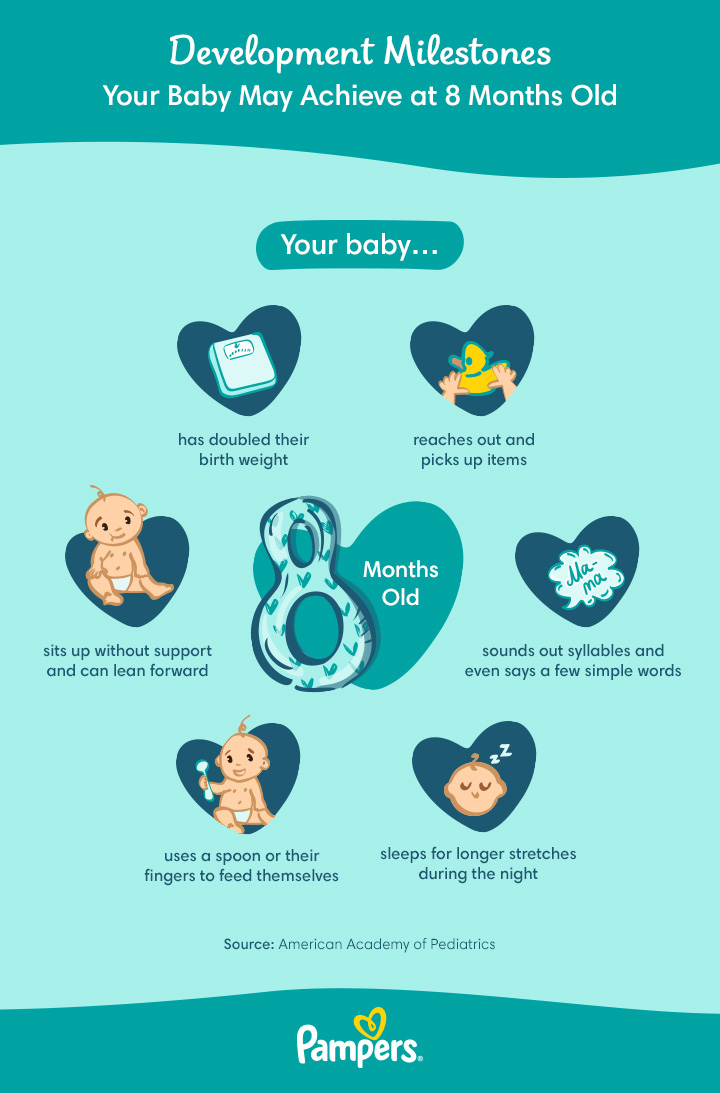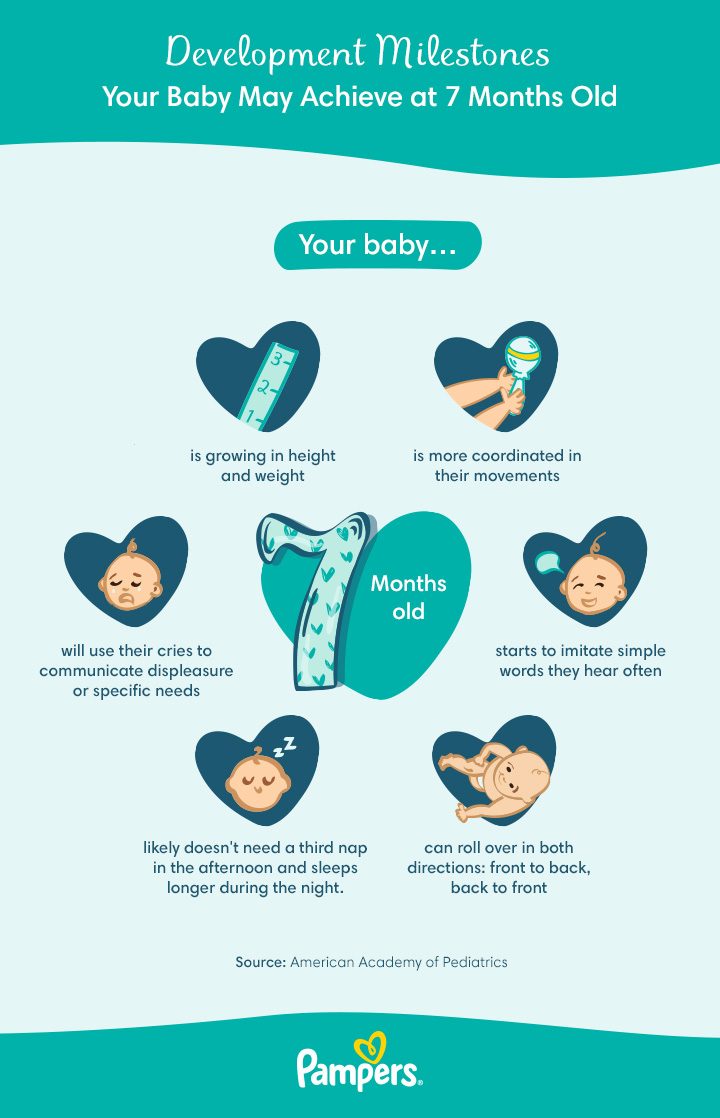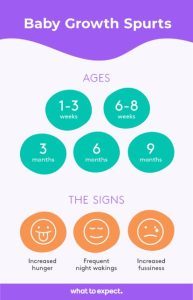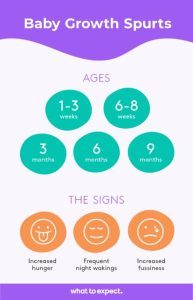Baby Development by Month from birth to one year, babies experience rapid developmental milestones, such as lifting their heads, smiling, and crawling. Their growth and development are often measured monthly.
In the first month, babies focus on bonding and communication. By the sixth month, they can sit without support and babble. As they approach one year, they may begin to stand and take their first steps. Understanding the key developmental milestones that occur each month can help parents track their baby’s progress and seek help if any delays are observed.
It’s essential for parents and caregivers to be aware of these milestones to provide the necessary support and care for their baby’s healthy development.
First Three Months, Baby development by month
The first three months of a baby’s life are a period of remarkable growth and development. During this time, infants undergo significant changes in their physical, cognitive, and emotional capabilities. Understanding these milestones can help parents and caregivers provide appropriate support for their little ones. Let’s delve into the key aspects of baby development during the initial trimester.
Physical Development
During the first three months, infants experience rapid physical development. From the moment of birth, babies begin developing their sensory and motor skills. The reflexes that babies are born with, such as the grasping, sucking, and Moro reflexes, become more coordinated and purposeful. By the end of the third month, most babies can lift their heads briefly when lying on their stomachs, bringing them one step closer to being able to roll over. Additionally, there is often a significant increase in their weight and length during this period.
Cognitive Development
The first three months see striking advancements in a baby’s cognitive abilities. While newborns can’t see very far, they are attracted to high-contrast colors and shapes. As the weeks go by, their vision improves, enabling them to track moving objects and recognize familiar faces. Furthermore, babies start to produce cooing and gurgling sounds as a means of communication, and they may even mimic facial expressions. This period marks the beginning of a baby’s emerging understanding of the world around them.

4-6 Months
During the months of 4-6, your baby will continue to make significant developmental strides. This is an exciting period as they become more active, curious, and aware of their surroundings. You will notice improvements in their motor skills, social interactions, and emotional development. Let’s take a closer look at the milestones your baby may achieve during this time:
Motor Skills Progression
Your baby’s motor skills will continue to progress rapidly during the 4-6 month period. They may start to:
- Roll from back to tummy and vice versa, gaining more control over their body movements.
- Develop stronger neck and shoulder muscles, enabling them to hold their head up for longer periods.
- Reach for and grab objects intentionally, refining their hand-eye coordination.
- Begin to sit up with support, showing increased core strength.
- Attempt to bring objects to their mouth, using their hands to explore their surroundings.
- Show an interest in exploring different textures by touching and feeling objects.
Social And Emotional Milestones
As your baby grows, their social and emotional development will also flourish. Here are some milestones you can anticipate:
- Increased social engagement: Your baby will become more responsive to your voice, smile, and facial expressions. They may also begin to imitate your gestures.
- Recognition of familiar faces: Your little one will start to recognize familiar faces, especially those of close family members and caregivers.
- Laughter and giggles: You will be rewarded with contagious laughter and giggles, as your baby discovers the joy of playful interactions.
- Bonding and attachment: Your baby may display signs of forming strong bonds with you and other primary caregivers. They will seek comfort from familiar faces and may show distress when separated.
- Increased awareness of their reflection: The sight of their own reflection may captivate your baby, sparking curiosity and self-recognition.
- Discovering cause and effect: Your baby will begin to understand simple cause and effect relationships, such as shaking a rattle to produce sound.
7-9 Months
During the 7-9 month period, your baby’s development is in full swing! They are growing rapidly and achieving exciting milestones. This is an extraordinary time marked by impressive leaps in language skills, feeding capabilities, and overall growth. Let’s take a closer look at the key aspects of your baby’s development during this stage.
Language Development
By the time your baby reaches 7-9 months, their ability to communicate and understand language will be expanding. They will be fascinated with the world around them and eager to absorb new words and sounds.
- Increased Babbling: During this period, your baby’s babbling will become more varied and rhythmic. You will notice them experimenting with different sounds and intonations, which is an essential step in their language development journey.
- Responsive to Their Name: Your little one will now respond more consistently when you call their name. This demonstrates their growing understanding of language and their desire to engage with you.
- Understands Basic Instructions: Your baby will show signs of comprehending simple instructions, such as “wave goodbye” or “clap your hands.” Their ability to understand and respond to these commands is a testament to their cognitive growth.
- Early Word Recognition: Around this time, your baby may begin to associate certain words or phrases with their corresponding meaning. This emerging vocabulary is an exciting step towards their language development.
Feeding Milestones
During the 7-9 month period, your baby’s feeding habits will evolve as they explore new tastes and textures. This is an important time for their physical and cognitive development.
- Introduction of Solid Foods: By now, your little one has likely started their journey into solid foods. They are ready for more adventurous tastes beyond purees, so it’s an excellent opportunity to introduce new flavors and textures.
- Finger Foods: Your baby’s growing dexterity means they can now start experimenting with finger foods. Offering small, bite-sized pieces of soft fruits or cooked vegetables will encourage their self-feeding skills.
- Increased Chewing Skills: As their gum strength improves, your baby will become more efficient at chewing. They will transition from simply swallowing to mashing food with their gums.
- Improved Drinking Abilities: Many babies learn to sip from a cup or use a straw during this period. It’s an exciting milestone that promotes their independence and enhances their fine motor skills.

10-12 Months
During the 10-12 months, baby development continues to progress rapidly. Babies at this stage may start crawling, pulling up to stand, and even taking their first steps. They may also become more vocal, saying simple words and understanding more of what is being said to them.
“Welcome to the 10-12 months stage of your baby’s development! This is an exciting time as your little one becomes more independent in their actions and achieves key developmental milestones. Let’s explore what you can expect during this important period.”
Independence In Actions
“During the 10-12 months period, your baby will show an increased desire for independence in their actions. They will start to assert themselves more and may become frustrated when they are unable to do something on their own. Encourage their independence by providing a safe and stimulating environment for them to explore.”
Key Developmental Achievements
“Your baby will achieve a range of developmental milestones during the 10-12 months stage. These milestones include:
- Improved coordination: Your little one will become more coordinated and adept at using their hands and fingers. They will be able to grasp objects using the pincer grasp, which involves picking up small objects between their thumb and forefinger.
- Crawling and standing: Many babies will start crawling and pulling themselves up to stand during this period. This newfound mobility allows them to explore their surroundings and reach for objects of interest.
- First steps: Some babies may take their first steps between 10-12 months, although this varies from child to child. Encourage their efforts by creating a safe environment for them to practice their newfound walking skills.
- Improved communication: Your baby’s language skills will continue to develop at a rapid pace. They will begin babbling more and may even say their first words. Encourage their communication by responding to their sounds and gestures.
- Object permanence: Your baby will start to understand that objects continue to exist even when they are out of sight. This newfound understanding will help them develop their memory and problem-solving skills.
” “Keep in mind that every baby develops at their own pace, so don’t be overly concerned if your little one hasn’t reached all of these milestones by the end of the 12-month mark. However, if you have any concerns about your baby’s development, it’s always a good idea to consult with their pediatrician. Enjoy this special stage of your baby’s growth and celebrate their newfound independence and achievements!”
Common Concerns
Babies develop at different paces, and it’s natural for parents to have concerned about their child’s development. Here are the common concerns related to monitoring developmental delays and seeking professional help:
Monitoring Developmental Delays
Understanding basic developmental milestones for each month can help parents monitor for any potential delays. Keep in mind, each child is unique, and there is a wide range of what is considered normal development.
Seeking Professional Help
If you notice any significant delays or have concerns about your baby’s development, it’s crucial to seek professional help. Trust your instincts; early intervention can make a significant difference.
Interactive Play Ideas
Engage your baby’s development with fun and meaningful interactive play sessions. Here are some creative play ideas to enhance your baby’s growth and strengthen your bond:
To Enhance Development
- Sensory Boxes filled with different textured items like soft fabrics or rattles
- Mirror Play to help your baby recognize themselves and practice visual tracking
- Peek-a-Boo games to develop object permanence and strengthen memory skills
Bonding Through Play
- Sing and Dance together to encourage language development and physical coordination
- Baby Massage for skin-to-skin contact and relaxation benefits
- Story Time with colorful picture books to stimulate imagination and auditory senses
Nutrition And Sleep Patterns
Nutrition and sleep patterns play a crucial role in the development and growth of a baby during their early months. Here we delve into the importance of these factors and how they aid in establishing healthy habits.
Importance For Growth
Baby development relies heavily on proper nutrition and healthy sleep patterns to support their growth and development.
Establishing Healthy Habits
Creating a routine that includes nutritious meals and consistent sleep patterns sets the foundation for lifelong healthy habits.

What Babies Should Be Doing At Each Month?
By 1 month, babies should lift head briefly. By 3 months, they may follow moving objects. At 6 months, expect babbling. By 12 months, babies often start walking.
What Is The Hardest Month For A Baby?
The hardest month for a baby is typically the first month due to adjusting to the new environment.
Which Month Do Babies Grow The Most?
Babies tend to experience their most rapid growth during the first year of life.
What Months Do Babies Change The Most?
Babies change the most during the first 12 months of their life, with significant growth and developmental milestones. Notable stages include rapid physical growth, cognitive development, and the acquisition of motor skills. These changes are crucial for laying the foundation for future growth and learning.
Conclusion
Understanding your baby’s development by month is crucial for their growth. By paying attention to their milestones and providing the right support, you can ensure they reach their full potential. Each month brings new achievements and challenges, and staying informed will help you celebrate their progress and address any concerns. ” baby development by month “





